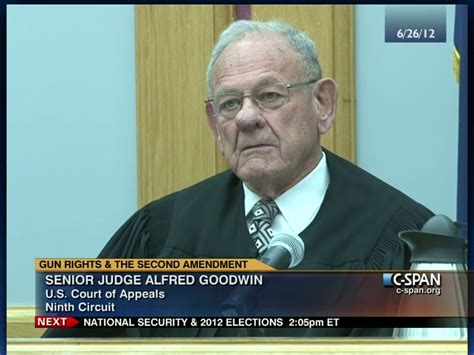A Quote by Gregory A. Boyd
The holiness of the kingdom of God must be preserved. If Jesus refused to acknowledge and fight for Israel as God's favored nation- even though it was the one nation in history that actually held this status at one time- how much more must his followers refuse to acknowledge and fight for America as God's favored nation" To say it another way, if Jesus was committed solely to establishing a kingdom that had no intrinsic nationalistic or ethnic allegiances- not even with Israel- how much more should his followers be committed to expanding this unique, non-nationalistic kingdom?
Quote Topics
Acknowledge
Actually
America
Another
Another Way
Committed
Establishing
Ethnic
Even
Expanding
Fight
Followers
God
Had
Held
His
History
Holiness
How
How Much
Intrinsic
Israel
Jesus
Kingdom
Kingdom Of God
More
Much
Must
Nation
Nationalistic
One Nation
One Time
Preserved
Refuse
Refused
Say
Should
Solely
Status
Though
Time
Unique
Way
Related Quotes
Jesus' kingdom was not like the popular expectation. He used the phrase 'kingdom of God' with a different meaning. His kingdom was not of this world (John 18:36). It was not like the kingdoms of this world. It was the kingdom of God, a supernatural kingdom. It was invisible to most people (John 3:3)-it could not be understood or experienced without the Holy Spirit (v. 6). God is Spirit, and the kingdom of God is a spiritual kingdom.
You better believe that I want to build a Christian nation, because the only option is a pagan nation. Not that the government can make someone a Christian by decree. A Christian nation would be defined as We acknowledge God in our body politic, in our communities, that the God of the Bible is our God, and, we acknowledge that His law is supreme.
Through the years, I have discovered some essential principles in discerning God's will: First, by God's grace, we must be firmly committed to seeking first the Kingdom of God and His glory. Secondly, we must establish a life discipline of renewing our minds in the Word of God. Thirdly, we must seek godly counsel from mature believers. Fourthly, we must watch for signs of God's providence opening doors and closing them. Finally, we should consider the desires of our heart.
For Jesus, it is clear, poverty is not the problem; it is the solution. Until human beings learn to live in naked contact and direct simplicity and equality with each other, sharing all resources, there can be no solution to the misery of the human condition and no establishment of God's kingdom. Jesus' radical and paradoxical sense of who could and who could not enter the Kingdom is even more clearly illustrated by his famous praise of children.
If the kingdom of God is within us and that is a kingdom of justice, of peace, and of joy then whoever remains with these virtues is certainly in the kingdom of God. By contrast, all who deal in unrighteousness, in discord, and in death-bearing gloom have taken their stand in the kingdom of the devil, in hell and in lifelessness. It is by these tokens that the kingdom of God or of the devil is recognized.
There is nothing more negative than the result of the critical study of the life of Jesus. The Jesus of Nazareth who came forward publicly as the Messiah, who preached the Kingdom of God, who founded the Kingdom of Heaven upon earth, and died to give his work its final consecration, never had any existence. He is a figure designed by rationalism, endowed with life by liberalism, and clothed by modern theology in an historical garb.
As Paul says, even though we as human beings know God, we refuse to acknowledge him. That's what Peter did. He refused even to "know" Jesus! Peter's failure reflects all our failure. It forces us to face the reality about ourselves. But the point of the story is that Jesus foretold this - he knew it was coming. And Jesus forgave Peter, when Peter confessed his love for Jesus. So the story illustrates both the horrible nature of sin, and the amazing reality of grace. That's essential to the whole meaning of the gospel.
God build’s God’s kingdom. But God ordered this world in such a way that His own work within that world takes place through the human beings that reflect His image. That is central to the notion of being made in God’s image. He has enlisted us to act as His stewards in the project of creation. So the objection about us trying to build God’s kingdom by our own efforts, though it seems humble and pious, can actually be a way of hiding from responsibility, of keeping one’s head well down when the boss is looking for volunteers.
...the kingdom of God is that invisible collection of committed Christians that transcends cultures, ideologies... and creeds- all bound by the golden commitment to say nothing and do nothing that would attack the self-esteem, the self-respect, and the dignity of any other human being, whether or not they are committed members of the kingdom of God. The dignity of the person then is the irreducible cell of true Christianity.


































